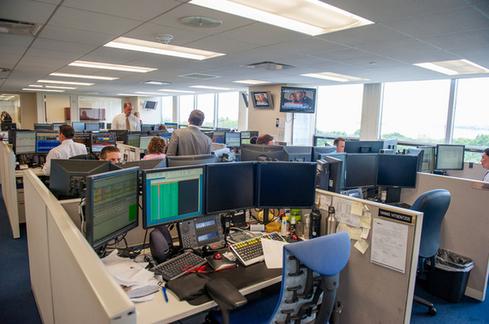10:01 AM
Should The Patriot Act have Addressed a Shortened Settlement Cycle?
"We've had to revise our thinking to include the possibility of a permanent terrorist threat..... When a once in a lifetime calamity befalls the financial district twice in eight years, old assumptions are up for rethinking"
Wall Street Journal, Op-Ed Column, September 19, 2001
Within six weeks of September 11th 2001 President Bush signed into law the hastily prepared 342-page U.S.A. Patriot Act. Among its many provisions were guidelines for the financial-services industry contribution to national security. The highlights were new mandatory Anti-Money Laundering (AML) and Anti-Terrorist (AT) regulations.
Clearly, the nation's lawmakers understood the increasingly important role our financial-services industry plays with respect to national security. In retrospect, the shortening of the settlement date cycle should have been included in the Act. The current three-day settlement cycle is the weak link in the business-continuity strategy for the U.S. Capital Markets.
One year after Sept. 11th industry strategy is primarily focused on keeping exchanges open and industry participants functional in the event of another attack. However, the risk that buyers and sellers may be unable to exchange ownership due to the three-day settlement cycle will remain unaddressed for at least another two years --that will be three years after September 11th 2001.
This renders the overall industry business-continuity strategy incomplete.
Consider this - the attack on Sept. 11th impacted not only the business activity of that date but also that of the prior three days. As a result of the three-day settlement cycle, the events of Tuesday, Sept.11th impacted transactions conducted on Thursday and Friday of that week, as well as Monday, Sept. 10th. These transactions were scheduled to settle within three business days (including Sept.11th). With the industry closing down on Sept. 11th and not re-opening until the following week, the settlement process was disrupted and substantial amounts of transactions did not settle as scheduled. When the industry finally re-opened, operations professionals faced the challenge of settling three-days worth of activity in one day. At no other time in the history of the U.S. capital markets has the risk associated with an extended settlement date been so apparent.
Why then is the industry suppressing a decision on shortening the settlement date cycle until 2004?
Shortly after the events of last September two events have occurred:
1) The proposed T+1 implementation date was moved from 2004 to 2005.
2) The date to make a decision on whether to implement T+1 was further postponed until 2004.
The reasons for suspending the move to T+1 are compelling: costs, resource allocations and concerns about the accuracy of the benefits (as outlined in the SIA's T+1 Business Case). However, they are secondary to the reality that the capital markets are primary targets of enemies of the United States.
This transforms the settlement date cycle from a financial-services industry concern to a national-security issue. Yet few in the industry view it as such and debate it in the same manner as other industry initiatives like decimalization or after-hours trading. When the decisions were made to push back and subsequently postpone, T+1 national security was never mentioned.
Unfortunately, this is one of those "wait and see" issues. We hope that the world never experiences the horror of Sept. 11th again. But the financial-services industry should prepare itself to face unpredictable circumstances similar to those of last September by having a complete business-continuity plan in place now.




















